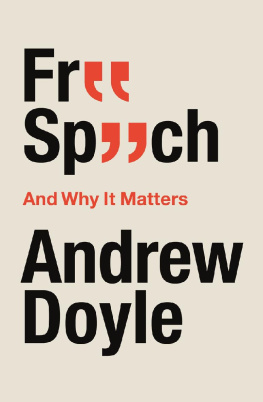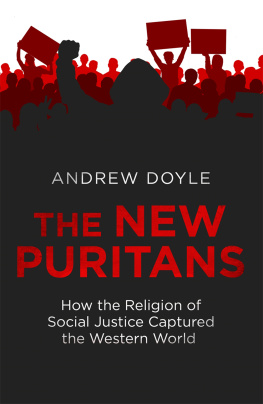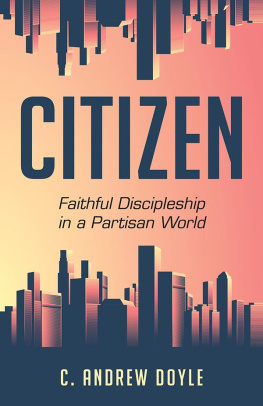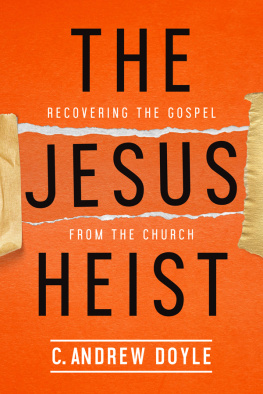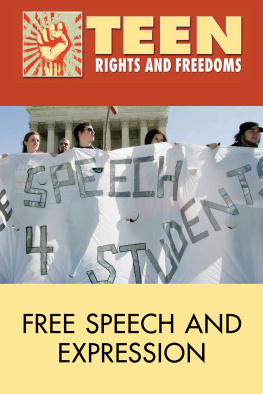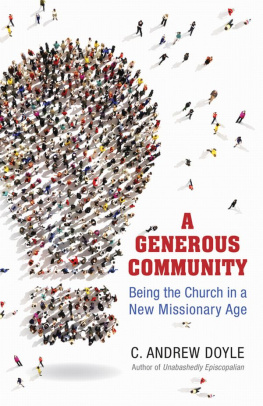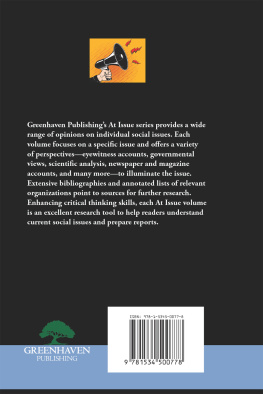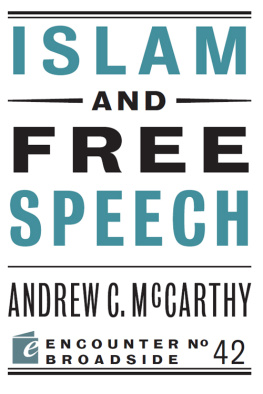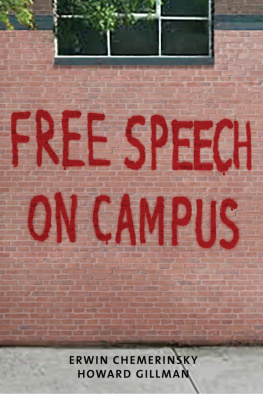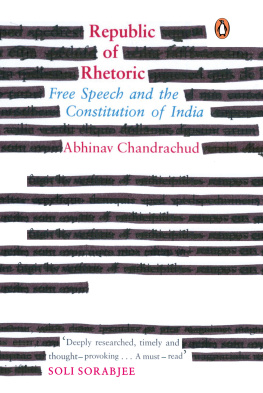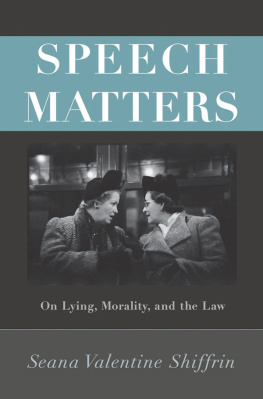Andrew Doyle - Free Speech And Why It Matters
Here you can read online Andrew Doyle - Free Speech And Why It Matters full text of the book (entire story) in english for free. Download pdf and epub, get meaning, cover and reviews about this ebook. year: 2021, publisher: Little, Brown Book Group, genre: Religion. Description of the work, (preface) as well as reviews are available. Best literature library LitArk.com created for fans of good reading and offers a wide selection of genres:
Romance novel
Science fiction
Adventure
Detective
Science
History
Home and family
Prose
Art
Politics
Computer
Non-fiction
Religion
Business
Children
Humor
Choose a favorite category and find really read worthwhile books. Enjoy immersion in the world of imagination, feel the emotions of the characters or learn something new for yourself, make an fascinating discovery.
- Book:Free Speech And Why It Matters
- Author:
- Publisher:Little, Brown Book Group
- Genre:
- Year:2021
- Rating:4 / 5
- Favourites:Add to favourites
- Your mark:
- 80
- 1
- 2
- 3
- 4
- 5
Free Speech And Why It Matters: summary, description and annotation
We offer to read an annotation, description, summary or preface (depends on what the author of the book "Free Speech And Why It Matters" wrote himself). If you haven't found the necessary information about the book — write in the comments, we will try to find it.
Andrew Doyle: author's other books
Who wrote Free Speech And Why It Matters? Find out the surname, the name of the author of the book and a list of all author's works by series.
Free Speech And Why It Matters — read online for free the complete book (whole text) full work
Below is the text of the book, divided by pages. System saving the place of the last page read, allows you to conveniently read the book "Free Speech And Why It Matters" online for free, without having to search again every time where you left off. Put a bookmark, and you can go to the page where you finished reading at any time.
Font size:
Interval:
Bookmark:
Published by Constable
ISBN: 978-0-34913-539-7
Copyright Andrew Doyle, 2021
The moral right of the author has been asserted.
All rights reserved. No part of this publication may be reproduced, stored in a retrieval system, or transmitted, in any form or by any means, without the prior permission in writing of the publisher.
The publisher is not responsible for websites (or their content) that are not owned by the publisher.
Constable
Little, Brown Book Group
Carmelite House
50 Victoria Embankment
London EC4Y 0DZ
www.littlebrown.co.uk
www.hachette.co.uk
For Jacques Berthoud
19352011
Give me the liberty to know, to utter, and to argue freely according to conscience, above all liberties.
John Milton, Areopagitica

Your Thinking

I ts
Over the past decade, many people have detected a pattern of minor changes in our culture, a kind of piecemeal were recorded by police forces in England and Wales. This sort of development has left a substantial number of us feeling as though we are no longer on secure ground; the tremors are too persistent. The culture wars, although often dismissed by commentators as a manufactured phenomenon, are closely tied to this gnawing sense that something is amiss. Millers experience is one of many stories in which the principle of free speech has been casually disregarded for the sake of what is perceived to be a higher social priority.
Much of this can be explained by a sea change in the publics attitude to free expression and its key function in a liberal society. A new identity-based conceptualisation of social justice has brought with it a mistrust of unfettered speech and appeals for greater intervention from the state. We are left facing that confusing and rare phenomenon: the well-intentioned authoritarian. When those who long for a fairer society are also calling for censorship, we find ourselves stranded on unfamiliar terrain. How are we meant to respond when the people who wish to deprive us of our rights sincerely believe that they are doing so for our own good?
Defenders of free speech are often confronted with the accusation that we are indulging in the slippery slope fallacy. The occasional instance of state overreach, we are told, is hardly cause for alarm. Yet the idea that citizens of the United Kingdom might be investigated for non-crime would have seemed unimaginable twenty years ago. One need only have a cursory familiarity with the history of authoritarianism to know that such regimes do not emerge overnight. I am by no means suggesting that we are freewheeling towards a future of gulags and show trials, but there appears to be a general degree of apathy that bodes ill for the preservation of our fundamental liberties.
Inevitably, the phrase Orwellian has become something of a clich and subject to derision by free speech sceptics, but it is predictable only because it is so pertinent. When Christopher Hitchens visited Prague in 1988 to report on the Communist regime, he was determined to be the first visiting writer not to make use of
Similarly, clich or no, the spectre of George Orwell looms large in current debates about freedom of expression. He joins a long line of thinkers who have explored what John Stuart Mill described in 1859 as the . Opposition to free speech never goes away, which is why it must be defended anew in each successive generation. It is a privilege that has been denied to the overwhelming majority of societies in human history. Our civilisation is abnormal, almost miraculous, in its dedication to this most estimable of principles. Free speech dies when the populace grows complacent and takes its liberties for granted.
In 1644, the poet John Milton penned an elegant apologia for freedom of speech called Areopagitica, a counterblast to the otherwise than the Franciscan and Dominican licensers thought. The evidence of his studies had persuaded him of the validity of the Copernican theory of the earths motion around the sun. Tellingly, Milton does not defend Galileos views at this time the Ptolemaic model of the universe was accepted by most educated people but he clearly feels aggrieved at those authorities who would see the free-thinkers of the world punished and shamed.
History does not look fondly on the hubris of those who, like Galileos inquisitors, appoint themselves as arbiters of permissible speech and thought. Their authority is only ever contingent on the wisdom of their time. Todays free speech sceptics are characterised by a similar tendency to mistake self-satisfaction for infallibility. If nothing else, the story of Galileo is a potent reminder of the importance of freedom of speech, and how none of us can ever be sure which heresies of today will become the certainties of tomorrow.
I start from the proposition that free speech is nothing less than the keystone of our civilisation. You may have reservations about this view. You may believe that unlimited speech enables the worst elements among us to commit harm. There is much to be said in favour of this perspective, although I hope to show you that a society that abandons freedom of expression risks exacerbating the very problems about which you are rightly concerned.

W e have much in common. We would rather live in a world in which love and compassion triumph over hatred and bigotry. We believe that we have a responsibility not only for the wellbeing of ourselves but for those around us. We are troubled when people are mistreated, particularly for immutable characteristics over which they have no control. We feel that individuals should think before they speak and consider carefully the impact of their words.
All of which amounts to a substantial bedrock of shared values upon which we can build. Some are persuaded that these values are threatened by absolute freedom of speech. In this little book, I will try to show that the reverse is true, and that preventing individuals from expressing themselves as they see fit represents a far greater menace to social cohesion. If we agree on nothing else, we can at least accept that our goals are similar even if our views on how best to achieve them are not.
By acknowledging that our intentions are good, we are in a position to move forward and consider our differences and how to spread hatred. In my view, free speech is a principle that transcends notions of left and right because all forms of political discourse depend upon its existence. Yes, unpleasant people are bound to use their speech to advance reactionary ideas, but the human right that enables them to do so is precisely the same right that allows us to counter them.
Moreover, if we permit the worst people in society to take ownership of our most fundamental values, we are gifting them a degree of power they do not deserve. Simply because hate-fuelled demagogues might disingenuously proclaim their fealty to free speech, this does not mean that the principle itself is tainted by association. Good people should not abandon their beliefs when bad people claim them for their own. If they do, such beliefs can only ever be said to have been tenuously held.
Free speech is the marrow of democracy. Without it, no other liberties exist. It is detested by tyrants because it empowers their captive subjects. It is mistrusted by puritans because it is the wellspring of subversion. Unless we are able to speak our minds, we cannot innovate, or even begin to make sense of the world. As Thomas Hobbes noted, the Greeks had but one word,
Font size:
Interval:
Bookmark:
Similar books «Free Speech And Why It Matters»
Look at similar books to Free Speech And Why It Matters. We have selected literature similar in name and meaning in the hope of providing readers with more options to find new, interesting, not yet read works.
Discussion, reviews of the book Free Speech And Why It Matters and just readers' own opinions. Leave your comments, write what you think about the work, its meaning or the main characters. Specify what exactly you liked and what you didn't like, and why you think so.

